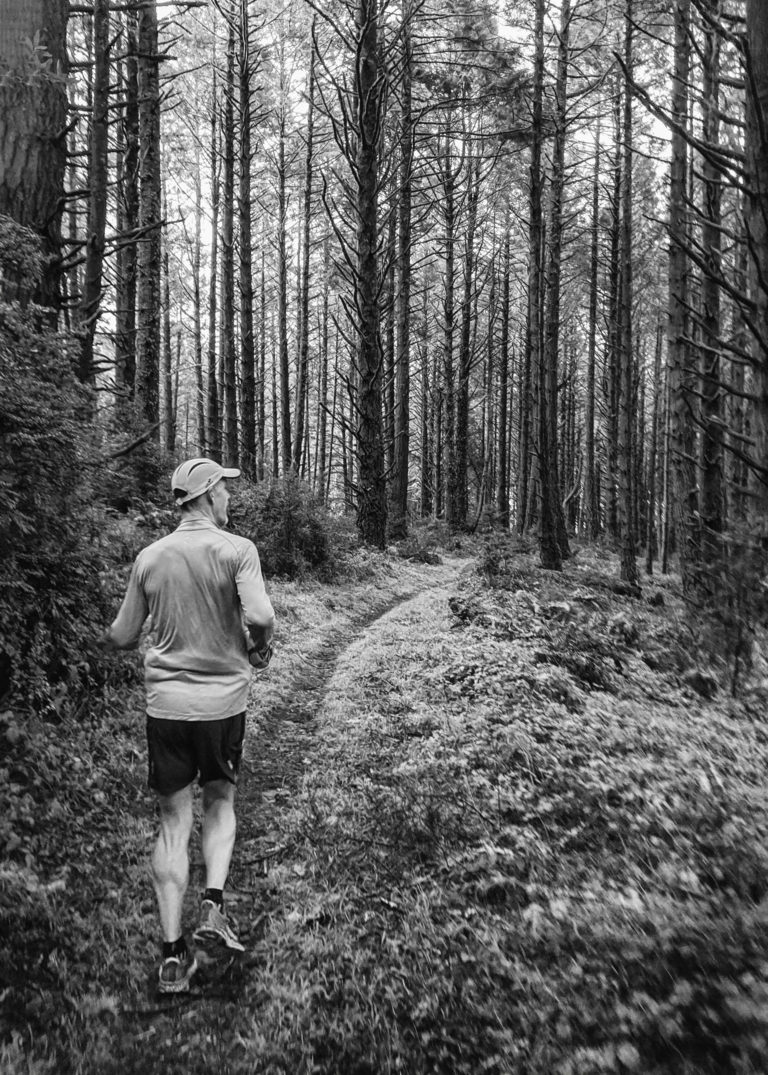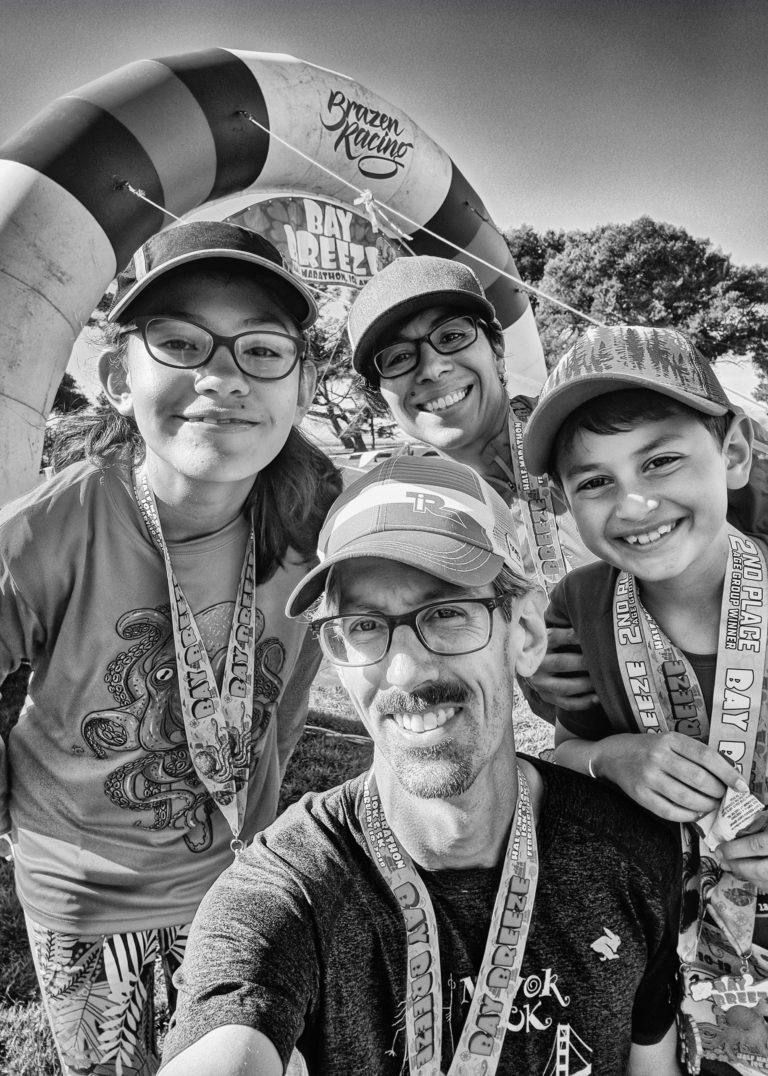Philosophy &
Expertise
My Philosophy
My coaching philosophy is inspired by world-class coaches such as Jack Daniels, Arthur Lydiard, and Bob Larsen, each of whom made significant contributions to the science of endurance training. I also admire coach Lisa Felder for her positive spirit and dedication to her athletes. These coaches all model excellent approaches worth borrowing ideas from, for example…
Polarized Training
Block Periodization
Heart Rate Zones
Field Testing

Recovery
Mindfulness
Groundedness
Happiness!

Kusala
My Kusala vision is to take the science and use it as a guide to walk the fine line between a healthy and effective training approach and an approach that leads to overtraining. Our journey involves building self-referenced mindset, developing an awareness effort, fatigue, and listening to your body. You’ll learn to feel competent and develop a positive self-image through gaining and recognizing your skills as a runner — not your ability to suffer and not dependent on receiving validation from others.
Health:
When you’re injury free — and pain free — you perform better! You also feel better, and when you feel better, you’re happier.
Happiness:
Find joy in running by abandoning the tireless pursuit of doing more. Your happiness affects all the people in your life and fosters harmony — not conflict.
Harmony:
It’s only when you’re healthy and happy, you can be present in all the roles and relationships in your life that matter to you. The Kusala approach aims to restore harmony so you can do what you love with support from those who matter most to you.

You noticed performance is not listed above… here’s why:
Athletes whose sport is their job — they have to pursue performance. You can make pursuing performance a job too — OR you can pursue health, happiness, and harmony and let performance work itself out.
My Experience
Like most runners, I am NOT an elite athlete. I started coaching in 2017 and became USATF certified in 2018 (ID# 1819849835). I’ve worked with a variety of people, including folks who were new to running, as well as kids as young as 8. I’ve coached runners who wanted to move up in distance or set a new personal record and athletes from other sports who wanted to add running into their routine to improve their stamina. My “running resume” is below…
Mountain Running
In the early 2010’s, I was very involved with ultralight backpacking, fast packing, and peak bagging. I’ve always loved the mountains and I’ve spent a lot of time in the Sierra, tramping on and off the trails. Eventually, the lines began to blur, and I took up ultradistance running. Some notable routes I’ve run are below.
- Grand Canyon Rim to Rim to Rim
- Zion Traverse
- Joshua Tree CRHT
- Rae Lakes Loop
- Evolution Basin Loop
Ultradistance Trail Racing
I started entering races as a way to keep motivated and in shape for self-supported runs that were on my radar. This led me down another rabbit hole and my focus shifted more toward running trail races ranging from half marathon to 100 miles. More recently, I’ve gone back to my roots of simple trail running and less racing, but Ultrasignup has a wrap sheet on me, here are a few of the highlights…
- Northface Endurance Challenge 50 miler
- Dick Collins 50 miler (2nd overall)
- Brazen Racing Ultra Half Series (2nd overall)
- Bandera 100k (my only DNF)
- Miwok 100k
- Speedgoat 50k (a beautiful and terrible course)
- The Ute 100 miler
- Javelina 100 miler (a hot but cool event)
- I’ve also paced runners at TRT100, WSER100, and RDL100, among other races.
Road Racing
For unexplained reasons, I worked my way backwards into shorter distances and started running the USATF Masters cross country series and road running series. I try to avoid running distances shorter than 10k because it just hurts too much 🙂 I previously ran with Tamalpa and I’m currently running with Pamakids in the Pacific Association. Some of the road races under my belt are:
- Big Sur International Marathon
- Oakland Marathon Relay
- Sactown 10 miler
- California International Marathon (3:05 “it’ll do”)
I really enjoy the variety of running and it has helped me understand the demands that different distances and types of running place on athletes. The most enjoyable part to me, by far, is helping others achieve their goals. So, coaching and pacing? Yes, thank you!
Biking
Although I swore off things with two wheels many years ago due to several serious incidents, I couldn’t resist the urge to ride again when my son began mountain biking and since got sucked back into BMX (yes, really), dirt jumping, downhill mountain biking, and cruising the roads between Marin and San Francisco. My son and I also dipped our toes into the water of Enduro Racing a few years ago. Riding involves building a very diverse and deep skillset and I love to ride for that reason alone!
General Tramping Around
I have spent a lot of time in the High Sierra running, backpacking, peak bagging, and fishing. Keep an eye for blog updates with some stories and photos if you’re interested. I am also happy to help runners take their sport into the realm of self-supported mountain adventures, which is the next level in terms of skillsets.
Educational Background
I hold an MS in Kinesiology, and a BS in Exercise and Movement Science (both from San Francisco State University), as well as Level 1 certification from USATF. I’m presently exploring PhD programs in Health Psychology. There’s really no substitute for science when it comes to understanding how the mind and body respond to training. I’ve invested about as many hours into the books as I have being out on the trails. The culmination of all my experiences allows me to put everything together in a practical and useful way.
